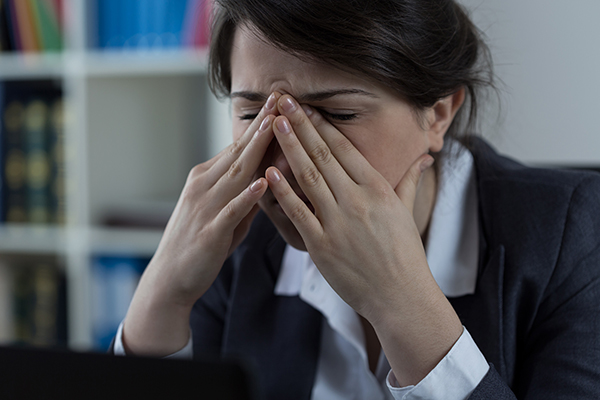Sinus Infections Can be Caused by Viruses, Bacteria or Fungi
Author: Sherry Farney
With the winter season upon us, many people have developed the sniffles. Sometimes those sniffles can progress into a full out sinus infection.
Sinus infections happen when fluid builds up in the air-filled pockets or sinuses, which allows germs to grow, according to the Centers for Disease Control and Prevention
Viruses cause most sinus infections, but bacteria can also cause some. Several factors can increase your risk of getting an infection. These include a previous cold, seasonal allergies, smoking and exposure to secondhand smoke, structural problems with the sinuses (such as growths on the lining of the nose or sinuses, known as nasal polyps), a weak immune system or taking drugs that weaken the immune system.

“Sinus infections can be caused by viruses, bacteria, or fungi,” said Esmael Amjad, M.D., FACS, a board-certified otolaryngologist (ear, nose and throat) physician at McLaren Ear, Nose and Throat in Fenton, Flint and Metamora. “Some people can be predisposed to get more sinus infections due to their sinus anatomy, or due to pre-existing conditions like respiratory allergies or immune compromise.”
Common symptoms of sinus infections include runny nose, stuffy nose, facial pain or pressure, headache, mucus dripping down the throat (post-nasal drip), sore throat, cough and bad breath. See a doctor if you have severe symptoms, such as severe headache or facial pain, symptoms that get worse after initially improving, symptoms lasting more than 10 days without improvement, or a fever lasting longer than a couple days.
“Viral sinusitis is far more common than bacterial sinusitis,” said Dr. Amjad. “However, it is clinically difficult to distinguish one from the other. Usually, duration is used to decide whether or not to prescribe antibiotics. Viral infections can be self-limited after 5-7 days, while bacterial infections persist for 7-10 days or longer.”
Since most sinus infections are viral, during the first week of the infection conservative supportive therapies are best. These include rest, saline rinses for the nose and sinuses, staying hydrated, and over the counter anti-inflammatory and decongestant medications if not contraindicated. If symptoms persist and worsen after 7 days, medical care should be sought. If bacterial sinusitis is diagnosed, antibiotics can be prescribed that can help prevent any complications.
“Some patients with chronic sinus infections may benefit from steroids that help open the sinuses by decreasing inflammation, allowing the sinuses to drain,” said Dr. Amjad. If infections persist or recur often, a surgery performed with image guidance and endoscopically (through the nose), may be beneficial. Patients with chronic sinus infections should be evaluated by a physician to identify the cause and discuss treatment options.”